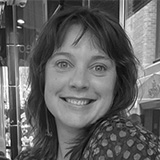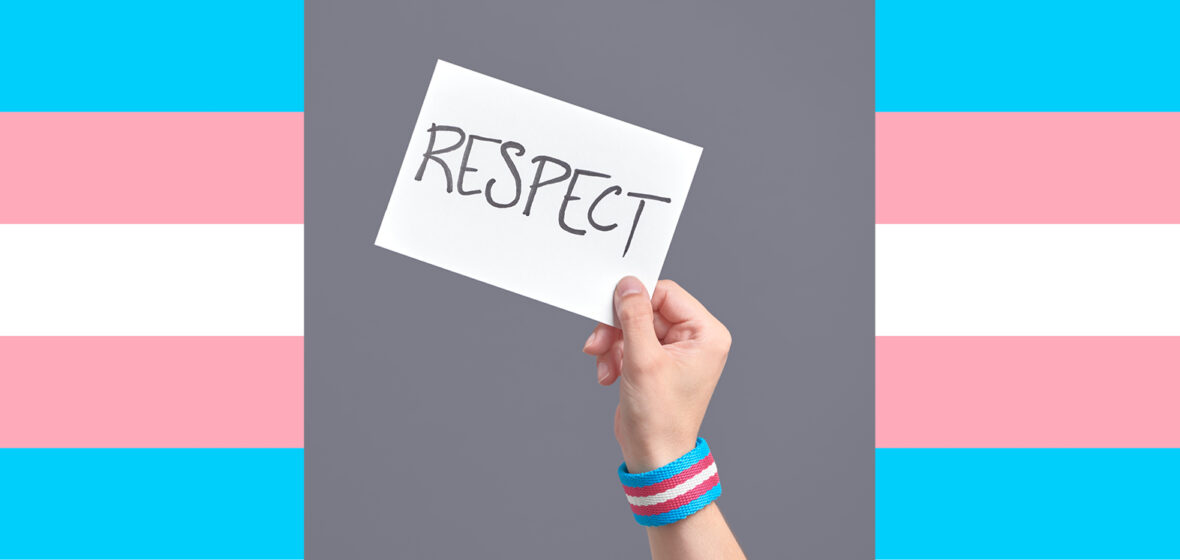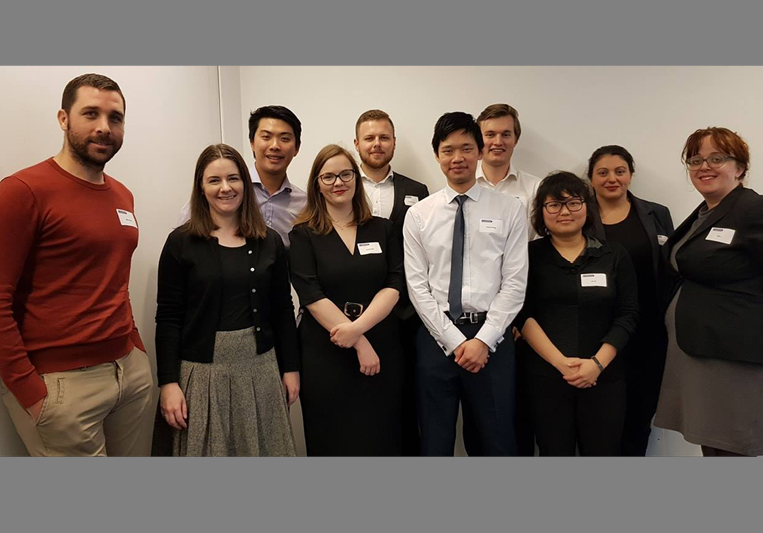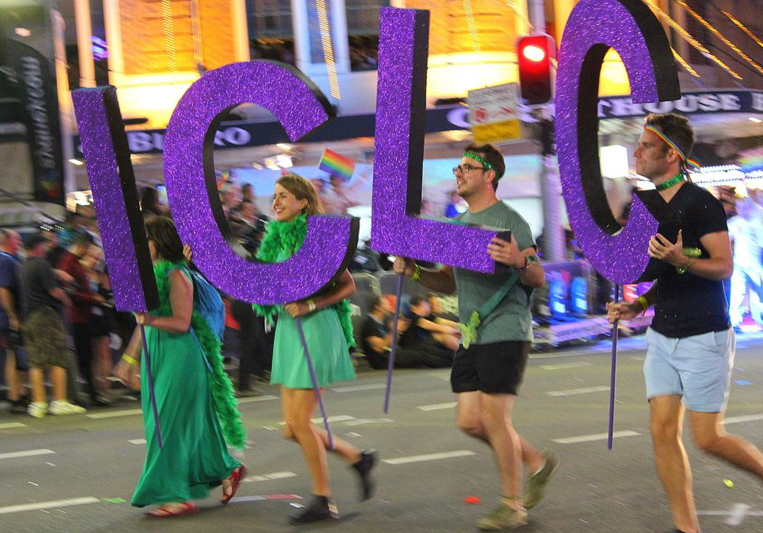We say that the law is dated and needs to reflect that trans women are women, trans men are men, non-binary people are non-binary. People that exist along that spectrum have the right to self-identification – and medical interventions shouldn’t form a part of that legal framework.
Discussions and debates about transgender rights continue to play out in the media, and it’s brought the need for increased legal support of this community into the spotlight. LSJ is taken behind the scenes of the critical work the Inner City Legal Centre is doing in this underrecognized area of the law.
“I don’t have time to get tired,” says Katie Green, Managing Principal at the Inner City Legal Centre (ICLC).
Green has returned from a trip to Tasmania and is now back at her office in Sydney’s Potts Point, across from King’s Cross Station. It may appear small and quiet, but there’s a sense of something brewing behind its façade. It feels reliable, professional, trustworthy. Above all, it feels safe.
Location matters. King’s Cross is famous for being a refuge to sex workers and LGBTQ+ in NSW, so out of necessity the ICLC became the go-to specialists for legal support to these communities.
The ICLC also offer the Trans and Gender Diverse Legal Service (TGDLS), in partnership with multinational law firm Dentons. It’s an appointment-based legal clinic open every second Monday of the month, from 2 to 6pm, for people in the trans and non-binary community. Friends and family, including parents seeking advice about their children, are also welcome.
Trans rights is a current hot topic in public discourse both online and in mainstream media. In March, trans activist Kellie-Jay Keen-Minshull (also known as Posey Parker) drove a series of protests and counter protests, including the notorious incident in Melbourne where Keen-Minshull was supported by a far-right extremist group in the steps of the Victorian Parliament.
On the other side of the coin, the recent attention is pushing society to present safer places for trans and non-binary people. Everyday more people in the community feel comfortable to come out, making the services provided by the ICLC even more important.
One of the most pressing issues with supporting trans and gender diverse people is how to give not only legal advice, but essential mental health support.
Green clarifies that it’s important not to conflate being trans or gender diverse with mental illness. “The science says quite clearly that the mental illness is a response to the discrimination and various forms of isolation experience,” she says.
According to ACON (the leading HIV and LGBTQ+ health organisation in NSW), trans and gender diverse people are four times more likely to be diagnosed with depression, and 1.5 times more likely to be diagnosed with anxiety disorder.
In a national survey of trans and gender diverse people aged 14-25, it’s revealed that almost 7 in 10 had been subject to discrimination and almost one in six experienced physical abuse. Almost half admitted to having attempted suicide.
Working with trans and gender diverse people requires an understanding of the community that many law firms are not equipped with. It’s not just about providing a safe and secure place, but understanding correct use of language and an inclusive approach.
ICLC is referred cases from other legal centres in the state, but the best course of action is to support and upskill both CLCs and solicitors in other communities.
“We don’t want to inadvertently be the only experts in this area,” Green explains. “Trans people are everywhere. If they are better assisted in their community, and their own community services are equipped to do that, we are very keen to support.”
But how does the ICLC promote their service, and prevent members of the community from falling in between the cracks?
Green is aware of these issues, while admitting that although there are systems in place to facilitate access to the TGDLS, it remains a challenge for the sector. “How do we reach people in rural and remote areas? How do we reach those young people that are being kicked out of home or feeling unsafe?”
It’s difficult to know how many people identify as trans in NSW. The 2021 census only collected data on sex and no information on gender or sexual orientation. This was criticised by Equality Australia.
While it doesn’t provide data on the number of trans-identified people in the country, the Australian Bureau of Statistics states that over 40,000 people marked non-binary as their sex. As a rough estimate, ACON extrapolates from US statistics, that there could be roughly 48,000 trans people living in NSW, of which many remain in areas and communities where support is scarce.
It’s here that Green reiterates the importance of the Centre’s partnership with Dentons, who provide pro bono support in delivering primary stage legal advice. It’s a symbiotic partnership – ICLC trains their lawyers on how to provide support to trans and gender diverse people, ensuring the viability of the service. “We absolutely could not do that without that private pro bono support,” Green says.
 Katie Green - Managing Principal Solicitor, Inner City Legal Centre
Katie Green - Managing Principal Solicitor, Inner City Legal Centre
Supply and demand
In addition to the TGDLS, the Centre provides generalist services to the local community. Each CLC is jointly funded by State and Commonwealth departments, but funding is scarce and the demand for legal advice surpass the funds available. Private support is indispensable.
As a Centre that provides a safe place for LGBTQ+ people, also means members of that community come to them for issues that go beyond gender.
It’s a matter of trust, and for a trans or gender diverse person who may be concerned about being discriminated or misgendered, Green hopes that they know the Centre is a safe space. “Do the police treat them equally? Does the legal system treat them equally?”, Green says, noting that the legal needs are different.
As part of this commitment, the ICLC started the “Safe Relationships Project” (SRP), open at the Downing Centre every Wednesday. It provides a safe room and legal advice for the LGBTQ+ community who are experiencing domestic violence. The safe room is the only of its kind in New South Wales, Green proudly states, and in the busiest local court of the state.
“Gay men cannot access the safe rooms, a lot of trans people can’t access the safe room, and even domestic violence in same sex and gender diverse relationships have a very different power dynamic to treat,” Green clarifies.
“One day we might be able to do [a safe room] at Parramatta, being the second busiest local court.”
Providing support includes also listening to LGBTQ+ people who are unfortunately the perpetrators of violence. The SRP helps adequately through the court system, in a way that acknowledges the systemic vulnerability and complexity of their situation.
“At the most basic, it’s better for them to have a lawyer appearing in front the court and correction incorrect assumptions about gender, making sure it’s going on the record,” Green says.
Trust and authority
The question of trust and authority within the community is a concern. “It’s very hard for gay, lesbian, queer and trans people to call the police,” Green says.
There’s a need to educate police to deal correctly with trans and gender-diverse people. It’s common that a police fact sheet on a case includes “deadnaming” – the act of referring, either intentionally or accidentally, to a trans or gender diverse person by their pre-transition name (their birth name, for example) – or acting in a way that can trigger further trauma in an already traumatic situation.
“I completely understand when a client comes to us, and they’ve either used violence or experienced violence, but are reluctant to reach out to the police for help because it is likely they are not going to be listened to, or believed, or may end up being charged themselves,” Green says.
For the ICLC, working and educating police is a continuous process that goes beyond the presence in the annual Mardi Gras parade. “I think police will start talking about trans and gender diverse inclusivity. I mean they have to. There are more trans and gender diverse people coming out in our community – it’s a very living, breathing, changing thing”.
In NSW, the law differentiates between “recognised” and “non-recognised” transgender people, where recognised are those who have legally completed gender affirming surgery.
But an amendment of the Anti-Discrimination Act 1977 says a trans person is a person who “identifies as a member of the opposite sex by living or seeking to live as a member of the opposite”. Therefore, discrimination in both cases remains unlawful.
“The research and the literature say that you don’t have to have, or need to have, or go through this expensive, painful and difficult procedure to be the gender that you are,” Green says.
“We say that the law is dated and needs to reflect that trans women are women, trans men are men, non-binary people are non-binary. People that exist along that spectrum have the right to self-identification – and medical interventions shouldn’t form a part of that legal framework.”
Green also hopes for strengthened protections in anti-discrimination law. Lately, the conversation has been capitalised by the topic of participation of trans people in sport.
But the problem also extends to services, the rental market, workplace, medical issues, says Green. “It’s very difficult to prove that you’ve experienced discrimination in accessing goods and services. The law says everybody’s equal; we know that most of the discrimination occurs when somebody is trying to enter something.”
“How do you prove it?”, Green reiterates, “and what’s the damage? What’s the economic loss? It’s a huge amount for that trans person who experiences barriers to just access normal things all the time”.
But until government and society apply the changes needed to level the plain, the ICLC will continue to provide legal support to the community.
“What we’re hearing from the community is that now is not actually a very safe time. Right now, there’s been an increase in anti-trans violence and sentiment in the media,” Green says.
“In the event that anything does go wrong, and that people are arrested or experience violence, we’re here to take people in for legal advice.”






